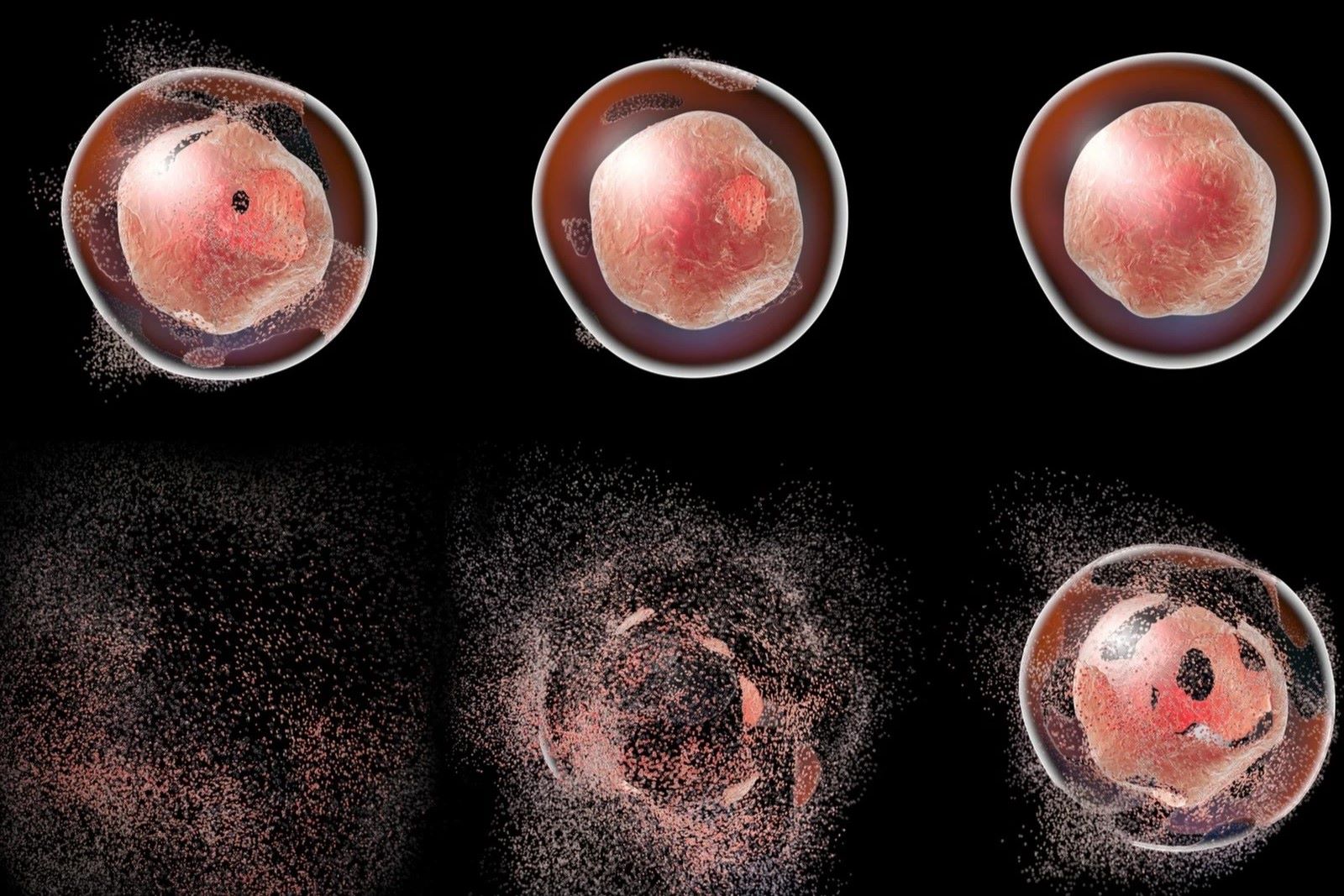
Apoptosis is a fancy word for programmed cell death, a process where cells self-destruct when they're no longer needed or are damaged. This might sound grim, but it's actually a good thing! Without apoptosis, our bodies would be overrun with old, malfunctioning cells, leading to diseases like cancer. Why is apoptosis important? It helps maintain balance in our bodies by removing cells that could cause harm. Think of it as a natural cleanup crew. From shaping our fingers and toes during development to protecting us from infections, apoptosis plays a crucial role in keeping us healthy. Let's dive into 18 fascinating facts about this essential biological process!
What is Apoptosis?
Apoptosis, often called programmed cell death, is a process where cells intentionally die. This is crucial for growth, development, and maintaining healthy tissues. Let's dive into some fascinating facts about apoptosis.
-
Natural Process: Apoptosis is a natural and necessary process in the body. It helps remove old, damaged, or unnecessary cells.
-
Greek Origin: The term "apoptosis" comes from Greek, meaning "falling off," like leaves from a tree.
-
Cell Shrinkage: During apoptosis, cells shrink and condense, unlike necrosis where cells swell and burst.
-
DNA Fragmentation: One hallmark of apoptosis is the breaking down of DNA into small fragments.
Importance of Apoptosis
Apoptosis plays a vital role in various biological processes. Here are some key reasons why it's so important.
-
Development: Apoptosis shapes organs and tissues during embryonic development. For example, it helps form fingers and toes by removing cells in between them.
-
Immune System: It helps the immune system by eliminating infected or cancerous cells.
-
Homeostasis: Apoptosis maintains balance in cell numbers, ensuring tissues don't grow uncontrollably.
-
Disease Prevention: Proper apoptosis prevents diseases like cancer by removing potentially harmful cells.
Mechanisms of Apoptosis
Understanding how apoptosis works can be quite intriguing. Here are some mechanisms behind this process.
-
Caspases: These are enzymes that play a crucial role in executing apoptosis. They break down proteins and other cellular components.
-
Mitochondria: Often called the powerhouse of the cell, mitochondria release proteins that trigger apoptosis.
-
Death Receptors: Certain receptors on the cell surface can initiate apoptosis when they bind to specific molecules.
-
Bcl-2 Family: This group of proteins regulates apoptosis by either promoting or inhibiting the process.
Apoptosis vs. Necrosis
Apoptosis is often confused with necrosis, but they are quite different. Let's explore these differences.
-
Controlled vs. Uncontrolled: Apoptosis is a controlled process, while necrosis is uncontrolled and often results from injury.
-
Inflammation: Necrosis usually causes inflammation, whereas apoptosis does not.
-
Energy Requirement: Apoptosis requires energy (ATP), while necrosis does not.
Apoptosis in Research
Scientists study apoptosis to understand diseases and develop treatments. Here are some interesting research facts.
-
Cancer Therapy: Researchers are developing drugs that can induce apoptosis in cancer cells.
-
Neurodegenerative Diseases: Understanding apoptosis helps in studying diseases like Alzheimer's and Parkinson's.
-
Stem Cell Research: Apoptosis is crucial in stem cell research for developing regenerative therapies.
The Final Word on Apoptosis
Apoptosis, or programmed cell death, is crucial for maintaining health. It helps remove damaged or unnecessary cells, preventing diseases like cancer. This process involves a series of steps where cells shrink, break apart, and get consumed by immune cells. Without apoptosis, our bodies would struggle to function properly.
Understanding apoptosis can lead to better treatments for various diseases. Scientists are exploring ways to control this process to fight cancer and other conditions. By learning more about how cells die, we can develop new therapies and improve existing ones.
In short, apoptosis is a vital biological process that keeps our bodies in balance. It’s a fascinating area of study with significant implications for medicine. Keep an eye on future research, as it promises to unlock new ways to enhance our health and well-being.
Was this page helpful?
Our commitment to delivering trustworthy and engaging content is at the heart of what we do. Each fact on our site is contributed by real users like you, bringing a wealth of diverse insights and information. To ensure the highest standards of accuracy and reliability, our dedicated editors meticulously review each submission. This process guarantees that the facts we share are not only fascinating but also credible. Trust in our commitment to quality and authenticity as you explore and learn with us.


